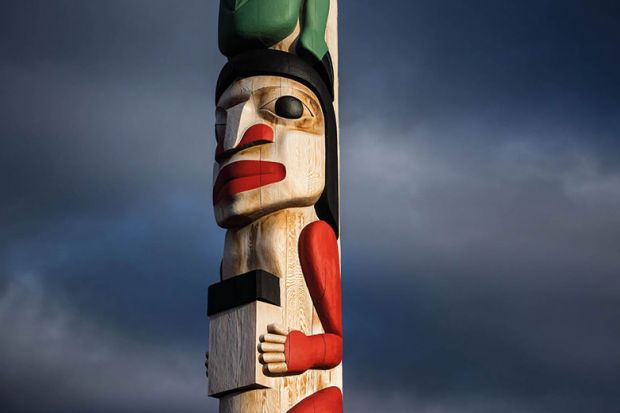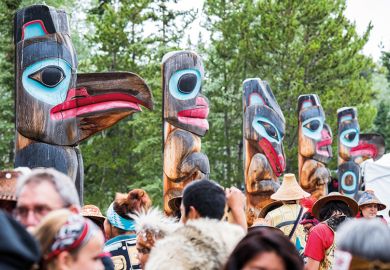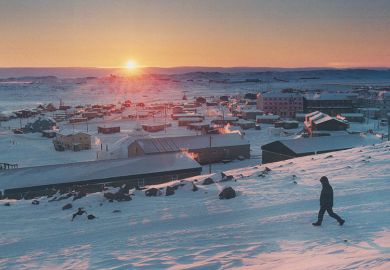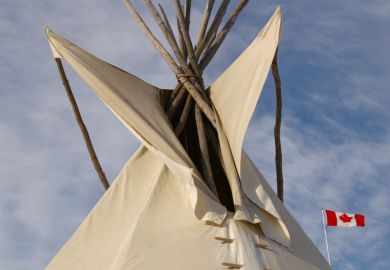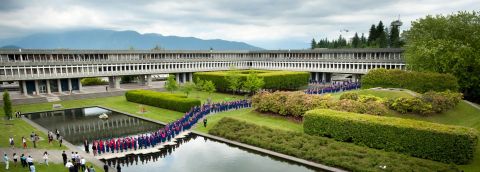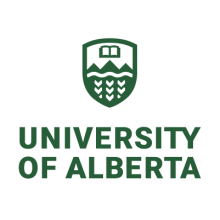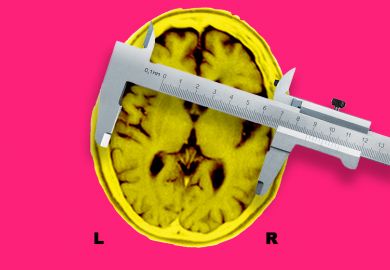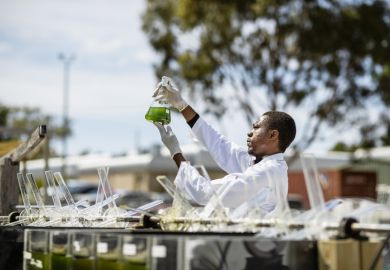A goanna is a kind of Australian monitor lizard that can grow up to 1.7 metres in length. However, such dinosaurian dimensions are no protection against the lethal consequences of eating a particular kind of cane toad that is spreading throughout tropical Australia and decimating or even obliterating local lizard populations.
But all is not lost. A recent research project involved catching the goannas and exposing them to smaller, unpleasant-tasting but non-lethal toads so they acquired an aversion to them and, thereby, learned to avoid the deadly ones, too. Tracking their survival rates, via radio transmitters attached to their bodies, indicates that the technique has great promise: by the end of the study, 56 per cent of trained lizards had lived beyond 110 days, compared with only 3 per cent of untrained lizards.
To carry out the project, a team of researchers based primarily at the University of Sydney joined forces with rangers from the Balanggarra Aboriginal Corporation, which administers land on behalf of the Balanggarra People at the northern tip of Western Australia. The rangers, it turned out, could spot the lizards at a greater distance than the Sydney researchers could. That was particularly true for the “shyer” goannas, which proved to be better learners and, therefore, crucial to the success of the project. These tended to hide in the long grass, invisible to the academics.
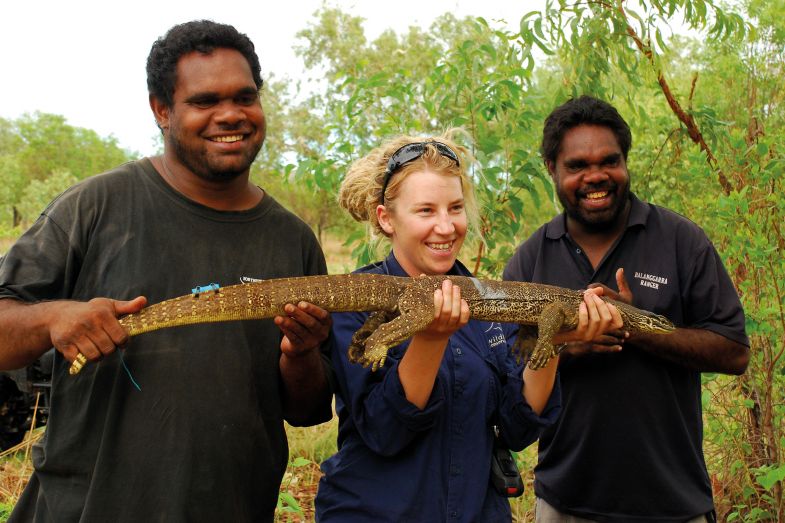
The resulting paper, “Sharper eyes see shyer lizards: Collaboration with Indigenous peoples can alter the outcome of conservation research”, published in March in Conservation Letters, concludes that “Indigenous collaboration is central to this conservation intervention” – which is now being implemented on a larger scale
A similar lesson is suggested by a study from the other side of world, which examined ways to mitigate the effects of climate change on the basin of the Näätämö river in Finnish Lapland, and to restore habitats that had been damaged by dredging, forestry, boat access and other human impacts between 1950 and 1980.
The project incorporated input from teams of Sámi people – the original inhabitants of Lapland. The research drew on their “traditional knowledge observations of the basin, including weather and star lore events” to “point to sites and drivers of change and their implications for salmon in the context of climate change”, according to a review paper, “How traditional knowledge comes to matter in Atlantic salmon governance in Norway and Finland”, published in December in the journal Arctic.
The Sámi were also given digital cameras, and became the first people to report the arrival in the basin of a beetle species usually found further south. This observation "was then published in peer-reviewed science journals, leading to the establishment of visual-optic communal histories as a method to detect change in a subarctic basin”. The overall result of “Indigenous participation at all levels” of the project was “a concrete impact on sustainability”, the paper says.
George Nicholas, professor of archaeology at Simon Fraser University in British Columbia, sees evidence of a wider trend. In a February article in The Conversation, provocatively titled “It’s taken thousands of years, but Western science is finally catching up to traditional knowledge”, Nicholas cites the excitement greeting recent research showing that kites and falcons intentionally carry and drop burning sticks to spread fires and flush out insects, rodents and reptiles – something the Indigenous peoples of northern Australia have known about for thousands of years.
“Employing traditional knowledge-based observations and explanations within multiple working hypotheses ensures consideration of a variety of predictive, interpretive or explanatory possibilities not constrained by Western expectation or logic," he writes. "And hypotheses incorporating traditional knowledge-based information can lead the way toward unanticipated insights.”
Traditional knowledge, the article adds, has much to teach us on topics ranging from “medicinal properties of plants and insights into the value of biological diversity to caribou migration patterns and the effects of intentional burning of the landscape to manage particular resources”. Asked by Times Higher Education about the implications for teaching, Nicholas mentions “opportunities for side-by-side approaches”, involving both traditional and Western knowledge – notably within “wildlife biology or ecology courses”.
Such incorporation of Indigenous knowledge into mainstream research and teaching is very high on the agenda in countries whose Indigenous peoples suffered at the hands of Western settlers. In Canada, the epicentre of the movement, the touchstone is the landmark, seven-year investigation by Canada’s Truth and Reconciliation Commission into the history and impact of the country’s notorious system of “Indian residential schools”. These were government-funded and church-run boarding schools that, until the 1990s, sought to forcibly assimilate Indigenous people into the Canadian mainstream by cutting them off from their own culture, in a brutal process that the commission concluded in its 2015 report amounted to “cultural genocide”. Ontario’s Algoma University is actually on the site of one of the schools, and incorporates a cemetery containing the graves of more than 100 students and staff from the school.
The commission report includes 94 “calls to action” regarding Canada’s relationship with its Indigenous people. As part of this, Nicholas argues that university curricula must be indigenised to “make the larger population aware of the colonial history of the land, of the disenfranchisement of the first peoples and what ensued”.
But some advocates argue for indigenisation to go much further. They call for a wholesale blending of “Indigenous knowledge” into teaching curricula and the conceptual frameworks informing research – and not only in the “obvious” subjects that are the frequent focus of demands for curricula to be diversified and “decolonised”, such as history, literature or the visual arts, but also the social and even the natural sciences.
Are such goals realistic? Are they wise? And will they achieve their desired goal of redressing historical injustice and boosting the status of Indigenous peoples?
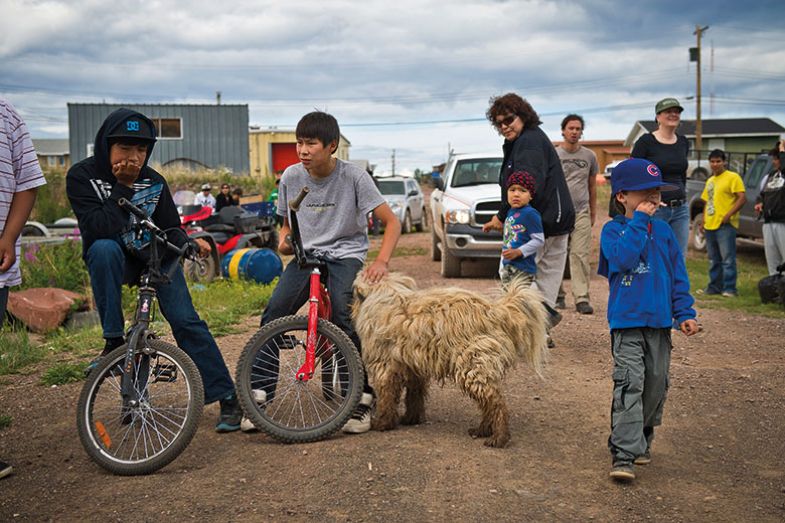
One obvious issue of social justice afflicting Indigenous populations is higher education admission rates. In New Zealand, says Joanna Kidman, an associate professor in the Faculty of Education at Victoria University of Wellington, “Māori tertiary student enrolments have been a focus for successive governments and all New Zealand universities have policies and support services in place for Māori students”. Yet none of them managed to meet the enrolment targets and pass rates for 2018 set by New Zealand’s Tertiary Education Commission in 2012.
One reason that has been suggested for the low participation of Indigenous students in higher education is the lack of reference to their cultures in university teaching and research. For Kidman, the key is to increase the proportion of Māori academics – which is currently less than 5 per cent of the total in New Zealand. As a result, she says, curricular change has so far been “patchy and very slow”, with medical schools, for instance, still “very entrenched in Western medicine”. Yet “increasingly, where Pākehā [non-Māori] scientists are working in the field in Māori communities, they’re starting to involve Māori in their teams or labs, and that has triggered a slow kind of transformation but potentially a very exciting one”.
Moreover, in research, there are “small numbers” of Māori scientists who are adopting approaches deriving from Māori knowledge and worldviews in their fieldwork, Kidman says. One example is Dan Hikuroa, an earth scientist and senior lecturer in Māori studies at the University of Auckland, who brings Māori perspectives on the natural world to bear on his study of rivers. Another is Pauline Harris, an astrophysicist and senior lecturer in science in society at Victoria University of Wellington, who is “dedicated to revitalising Māori star lore in her academic teaching and research”.
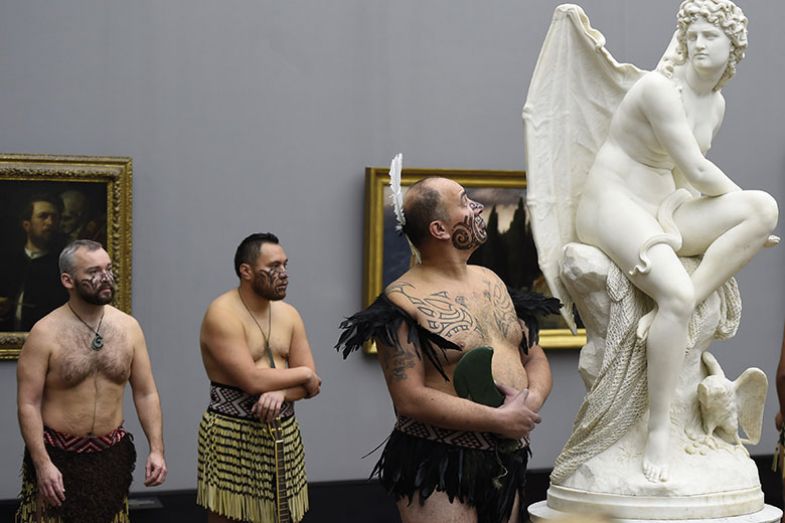
Meanwhile, all incoming students to Australia’s La Trobe University must take a one-hour module on Indigenous history, culture and customs, known as Wominjeka (or Welcome). The university has also introduced a leadership programme and entry pathway for Indigenous school students, “focused on cultural immersion, peer mentoring and an academic boot camp”, according to Andrew Harvey, director of the university’s Centre for Higher Education Equity and Diversity Research. And the School of Education employs “an Indigenous practitioner in residence”, who “works part-time in the community and part-time at the university, overseeing Indigenous subjects and participating in broader subject design and supporting other lecturers”.
The university seeks to promote what Harvey calls “inclusive excellence”, whereby “the presence of Indigenous perspectives across all disciplines can enable non-Indigenous students to be challenged, to question their assumptions and to experience deeper learning through rich conversations”.
In Canada, meanwhile, issues around Indigenous communities have been “a priority for over 10 years”, says Paul Davidson, president of Universities Canada. But he admits that institutional minds were concentrated by the Truth and Reconciliation Committee’s calls to action, and he believes that universities recognise “their unique responsibility in the reconciliation process”. Questions around access are “very urgent”, given that the Indigenous population is growing at three times the national average, while proportions going to university are only a third as high. And in research, too, things are starting to change. Universities are rethinking the old models of research on Indigenous communities – which involved “going up North for the summer” and never sharing any of the knowledge generated – and are now examining how to “work in partnerships in a way that is sustainable”. Nonetheless, Davidson acknowledges, “the heavy lifting is still ahead of us”.
One institution that is arguably ahead of the curve is the University of Toronto. According to Jonathan Hamilton-Diabo, its director of Indigenous initiatives, the institution now has “a rather robust Indigenous story”. In response to the 94 calls for action, a steering committee delivered a report in early 2017 requiring that all major events at the university include a statement acknowledging that the campus is located on what had been – as the statement puts it – “the traditional land of the Huron-Wendat, the Seneca and, most recently, the Mississaugas of the Credit River”. Moreover, Hamilton-Diabo and an Indigenous personal librarian were both appointed as part of a wider push to employ more Indigenous faculty. Mentoring programmes offer potential Indigenous students a taste of life on campus. And a new Indigenous “hub” has been created, featuring a medicine garden and “the opportunity to meet with Elders and traditional teachers for support, guidance and teachings”.
Toronto had also responded to specific calls to action by integrating (or planning to integrate) more Indigenous material into courses on social work, nursing, law, education and journalism. Asked about other disciplines, Hamilton-Diabo responds that the university’s Faculty of Applied Science and Engineering has appointed a special adviser to its dean. Jason Bazylak, an associate professor in the teaching stream of mechanical engineering, will be “assisting with the implementation of strategies for incorporating Indigenous content into the curriculum”, Hamilton-Diabo says. “Thus far, first-year design projects include engineering challenges related to Indigenous communities.”
Given that Indigenous thought and philosophy fall outside “a Westernised ideological and methodological framework”, the university needs to find ways of “combining [the two traditions] in ways that are synergistic” and could expose “the limitations of Westernised scientific methodology”.
On the implications for medicine – where Toronto degrees now include “one full course-worth of content focused in Indigenous health” – Hamilton-Diabo points to the example of an independent community health centre in Toronto “where one can receive pharmaceutical-based medical care for diabetes, [plus mainstream services in] dentistry and counselling, while also having the option to engage with traditional approaches to healing”. These include “fasting ceremonies”, “plant-based medicines” and a “sweat lodge”: a hut in which Elders carry out purification ceremonies.
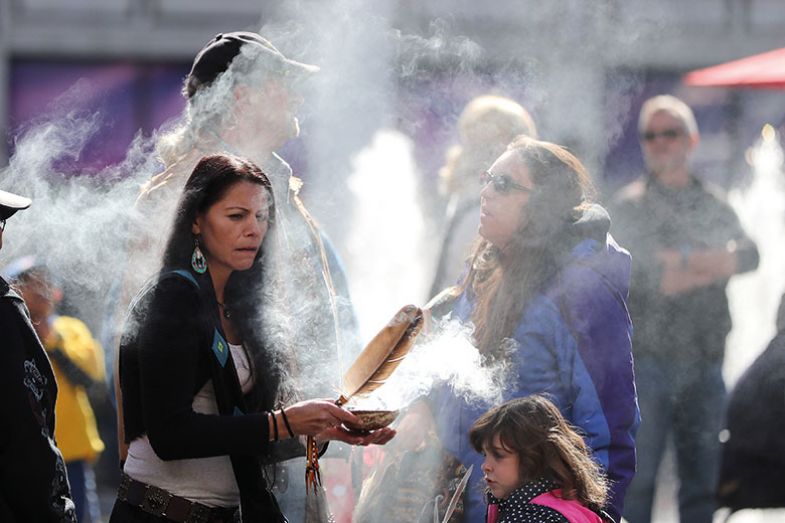
Meanwhile, the University of Alberta announced last November that it was eliminating a quota system that limited to just five the number of Indigenous applicants admitted to its medical degree via its “Indigenous Health Initiatives Program”. From autumn 2020, the school – which admits 165 students a year – will admit all Indigenous students who meet the eligibility requirements. As well as satisfying the academic standards required of any medical student, the shortlisted Indigenous applicants are “invited to undergo an additional interview with a panel comprised of elders and Indigenous community members and physicians”. This, according to the programme’s director, Tibetha Kemble, is “an opportunity for Indigenous candidates to reaffirm their cultural connection to community and reflect back to us that they are entering the medical school wanting to contribute to the Indigenous community through the special place they would hold as a health professional”.
This has already led to a noticeable increase in interest from potential Indigenous applicants, Kemble says. Given that “returning to community is where the greatest health needs are: where Indigenous people need to see an Indigenous physician across the table”, she hopes that the programme will help “build a critical mass of Indigenous health professionals”.
In terms of the curriculum, Kemble refers to the Truth and Reconciliation Committee’s 24th call to action, which exhorts medical and nursing schools “to require all students to take a course dealing with Aboriginal health issues, [involving] skills-based training in intercultural competency, conflict resolution, human rights and anti-racism”. In response to this, a working group at Alberta has produced a 12-module course on Indigenous health. The first half of this, examining the health issues faced by Indigenous populations, was introduced this academic year; the second half, to be introduced in October, will consider “traditional and Indigenous ways of being in relation to health”.
This will include questions of “intercultural competency”, such as “working safely and respectfully with Indigenous women in birthing practices”, Kemble says. But it will also aim to “balance out a one-sided view of education generally, based on a biomedical model”. More specifically, “if students are looking at some content on cancer or any other condition, there’s always a case study that examines how Indigenous peoples are affected, how we might respond and how an Indigenous worldview might approach this. It’s becoming embedded as a core part of the course. I can’t guarantee this will span every single medical condition, but for the conditions that disproportionately affect Indigenous people there will be some balanced content and students will learn about different forms of treatment for the same condition.”

Such statements and policies, however, ring alarm bells for some observers. One is Rodney Clifton, an emeritus professor of education at the University of Manitoba. His wife is Indigenous, but, for all its faults, he believes that “the Western scientific method is the best way of testing the effectiveness of medical interventions”. To illustrate his point, he tells a story.
“A few years ago, an Indigenous friend of ours had a grandson who had cancer in his leg,” he recalls. “The oncologist said there was a good chance of…saving the child if surgery [to remove the cancerous tissue] was performed soon. Rather than follow this advice, the family decided to go to Indian healers around North America for alternative treatments. A beautiful child died because the cancer spread.”
As Clifton sees it, “Indian medicine is being accepted in universities on faith alone. Moreover, those making the claims for the faith-based [treatments] are not generally open to testing the outcomes in a controlled experimental, scientific, way…I do not think that universities should embrace the idea that knowledge is not open to debate and scientific investigation.”
In his Conversation article, Simon Fraser’s Nicholas notes that “Indigenous peoples don’t need Western science to validate or legitimate their knowledge system”. However, “some do appreciate the verification”. And “although hypothesis testing is not a feature of Traditional Ecological Knowledge, rigour and replicability are not absent”.
Speaking to THE, he cites research by Kelly Bannister, co-director of the POLIS Project on Ecological Governance and an adjunct professor in the Faculty of Human and Social Development at the University of Victoria, which “demonstrated [the] anti-fungal and anti-microbial properties” of balsam root, long used medicinally in the interior of British Columbia. Just as “Western scientific medicine” is fallible but uses laboratory testing to make progress, “there was essentially a comparable kind of testing reflected in [traditional knowledge] of plant properties as to what had positive (or negative) effects, based on hundreds/thousands of years of observing what happened when used”.
But Clifton is not convinced. In a 2017 article in THE, he laments that “current political thinking” in Canada holds that “respectful people” cannot “legitimately question” Indigenous Elders, the holders of traditional knowledge. Hence, “scholars are afraid to publicly question the indigenisation of knowledge for fear of being labelled neocolonialist or even racist”.
He believes that “there is a lot of lip service being paid to indigenisation, and this is generating considerable [heat] with very little light. Universities are doing it because they must…Most professors and administrators are smart enough to realise it is a scam, but they will not say that out loud.”
Someone who is willing to be publicly equally sceptical about many aspects of the indigenisation agenda is Frances Widdowson, an associate professor in the department of economics, justice and policy studies at Mount Royal University in Calgary.
In September 2018, she argued on Twitter that a document given to faculty members by her university's Office of Academic Indigenization, called “Indigenizing Mount Royal’s Curricula: A Call For Engagement”, contained “serious flaws” and constituted “an unprecedented threat to academic freedom, freedom of inquiry and academic standards”.
In a blog posting for the Society for Academic Freedom and Scholarship in April, she takes exception, for example, to the fact that the university’s biology department is “working with numerous community Elders and Knowledge Keepers” to ensure that students will obtain “a diverse knowledge base that includes the traditional Indigenous knowledge”. And she deplores the stated goal of building a “culture of celebration” at Mount Royal “rather than one that encourages critical thinking and rigorous methods. Even worse, it is tacitly assumed that anyone who has reservations about indigenisation is not an ‘ally’ of Indigenous people. This has created huge difficulties for faculty who question the hype. My criticisms of indigenisation, for example, have resulted in accusations that I am a ‘pathetic racist’ with a ‘hateful perspective’, who is damaging Mount Royal University’s reputation.”
Speaking to THE, Widdowson suggests that some of the things that go on in the name of “indigenisation” can harm those they are supposed to help: “I talk to a lot of scientists who say ‘This is not beneficial to Indigenous people.’ They should be encouraged to become scientists like everyone else and not have a separate stream of ‘Indigenous science’, which is, at best, opinion and, at worst, unverifiable spiritual beliefs. That’s not to say [that such beliefs] shouldn’t be studied, just like Christianity and Islam, but this is about saying that spiritual belief is actually a form of knowledge, which is a whole different question and extremely condescending. The people who will suffer are Indigenous.”
Although Widdowson acknowledges that traditional plant remedies may have therapeutic value, “the difficulty comes with denying the huge amount of scientific progress that has unfolded. Willow bark is not the same as aspirin, even though it’s the same root substance. The amount of understanding and technology that went into creating aspirin is at a much higher level.”
The notion that “Indigenous people have a separate way of knowing and doing things”, Widdowson continues, can lead to claims that “it is inappropriate for a non-Indigenous person to speak honestly with them. People say I am disrespectful, when I see it as ‘This is how I am respectful, because I am letting people know my honest opinion and not pretending to believe something that I do not think is true.’”
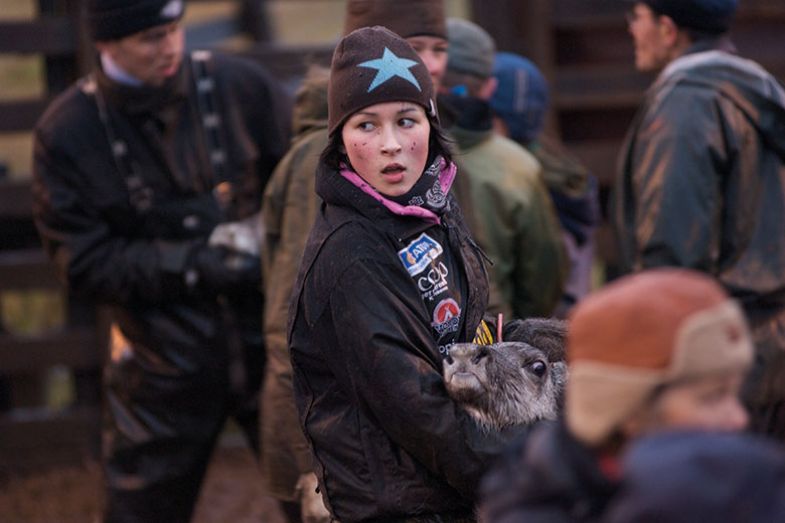
Where the limits of indigenisation lie remains very much up for grabs. Nicholas, for instance, says its manifestation in the curriculum is “still unfolding”, and is likely to “take different forms in different contexts”.
But it does seem reasonable to expect a continuation of the trend for Indigenous involvement in research – particularly where local knowledge and understanding has indisputable benefits. The goanna lizards paper notes that “the integration of Indigenous knowledge into natural resource management has been criticised as a fashionable trend, at times amounting to little more than an exercise in ‘box‐ticking’. In an era of political correctness, ‘cultural diversity’ is often valued through the lens of ideology (sometimes bordering on tokenism). In contrast, our study shows direct scientific advantages to cultural diversity in research teams and to genuine collaboration among people from differing races and backgrounds.”
Georgia Ward-Fear, the paper’s corresponding author and a postdoctoral researcher at the University of Sydney, tells THE that although it is crucial to acknowledge the differences between different Indigenous cultures, incorporating “Indigenous perspectives on learning, understanding and observing living systems” into scientific courses could form the basis for “a really well-rounded, progressive curriculum”. For instance, she thinks that Indigenous practical skills such as tracking, hunting and “gaining ecological information” could be incorporated into a “more nuanced” course in field skills.
The conflict is likely to be over how Indigenous involvement in research is conceptualised. The Scandinavian paper notes that while the Näätämö co-management project was successful, the expectations of international policymakers regarding the integration of traditional knowledge with science are “at times unrealistically high, and hard to meet at local levels and in national policy contexts”. It also notes “fish biologists’ tendency to consider Sámi knowledge as a source of data on specific factors related to salmon rather than a knowledge system” that positions salmon in a larger ecological context of relationships. And it notes that the projects that “seem to fulfil [Sámi] expectations of traditional knowledge co-production with science…seem to have the least impact on policy, and vice versa". This creates “questions of legitimacy” among the Sámi participants.
“To achieve social robustness,” the paper suggests, “projects need to balance scientific credibility with legitimacy among local and Indigenous rights holders. This balance might entail giving up on expectations of integrating traditional ecological knowledge with science and embracing the undefined spaces within Arctic and Indigenous knowledge production.”
As “settler countries” wrestle with their dark histories and continuing inequalities, the question of how far the indigenisation process should go is likely to put the relationship between community and reparation on the one hand and research, knowledge and science on the other into ever sharper relief.
matthew.reisz@timeshighereducation.com
Academics and university leaders will discuss how universities play an effective role in supporting civic efforts to create a more inclusive society at Times Higher Education’s Teaching Excellence Summit, which is taking place at Western University, in London, Ontario, Canada, from 4-6 June 2019.
POSTSCRIPT:
Print headline: Native wisdom
Register to continue
Why register?
- Registration is free and only takes a moment
- Once registered, you can read 3 articles a month
- Sign up for our newsletter
Subscribe
Or subscribe for unlimited access to:
- Unlimited access to news, views, insights & reviews
- Digital editions
- Digital access to THE’s university and college rankings analysis
Already registered or a current subscriber?
